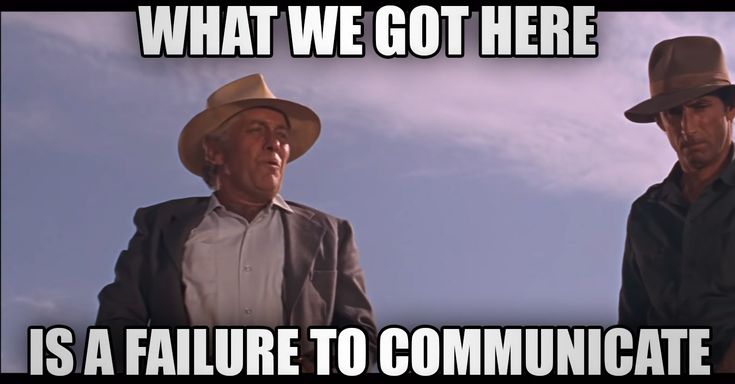Are you a leader? It’s a question we all must ask ourselves. For some, the answer is an easy “yes.” For others, they hesitate to label themselves as a leader. Here’s the truth – we are often called to lead. Sometimes it is in our professional lives, and other times personal. Often, we have to take charge or show others the way even if we don’t define ourselves as a leader. But what makes a good leader? And, more importantly, how can you become one?
Here are a few characteristics of a great leader…
1- Leaders Start Early. You’ve probably heard the sayings, “Early to bed, early to rise, make a man healthy, wealthy, and wise,” or “The early bird gets the worm,” but what exactly do these sayings mean? Can starting early really impact my ability to lead? There is no easy way to answer this question. However, most effective leaders start their day early so they can be free from distractions and take advantage of this “quiet” time to get focused. Another benefit to an early morning rise is that it allows extra time for meditation, exercise, and food. It also can give you a jump start on communication (emails).
2 – Leaders are Excited and Passionate about what they’re doingDo you know your why? In other words, why do you do what you do? People are drawn to your why- NOT your how. The mundane details of your product/service aren’t what others connect with — they connect with your passion. They want to see it and know your “why.” In fact, when passion meets a clearly communicated vision, it equals productivity. Passionate leaders “lean into” their why and share it with excitement – it’s infectious. But motivating a team isn’t the only superpower leading with passion provides. Leading with passion lends itself to resilience and a positive outlook. And those, in my book, are winning traits.3 -Leaders Build Teams that Complement their Skills A great leader not only recruits a great team but also searches for people whose skills complement and supplement their own. We can’t be all and do all for everyone. Each of us has a skill set that is unique and includes shortcomings. You can’t do it all. A true leader recognizes this, finds others to fill in the gaps, and knows how to access that talent when needed. Building an award-winning team also means you understand yourself. If, as a leader, you are unwilling to admit your faults, you’ll never go far. Great leaders possess emotional intelligence and lead by allowing others to flourish within their given abilities. Think of your body. If our body didn’t have different parts with distinct functions working together, we wouldn’t perform well. The same is true for a world-class team – when put together correctly, each element working in conjunction makes for a better whole.
4 – Leaders Believe in Personal DevelopmentBeing an authentic leader isn’t present at birth. Some people possess the skills to step into a leadership role quickly. Still, most are born through personal growth and development. Life has a way of challenging us; we can either step up to the challenge or refuse to adapt. General Douglas MacArthur said, “A true leader has the confidence to stand alone, the courage to make tough decisions, and the compassion to listen to the needs of others. He does not set out to be a leader, but becomes one by the equality of his action and the integrity of his intent.” Personal growth develops your leadership skills. It motivates you and helps you strive for excellence. It’s a non-negotiable. Leaders develop, change and grow as needed.
5 – Leaders Always CommunicateCommunication is a two-way street- listening and communicating. I don’t know about you, but more than once, I wished I could read someone’s mind. I don’t believe it’s a skill I want, however useful it might be. But here’s my point. I am not a mind reader, and neither are you. So, if I want you to know what I’m thinking or what I need, I must communicate it in a way you understand. Leaders are excellent communicators. Great leaders seek to understand others first, they maintain eye contact, show genuine interest, and impart their vision. Great leaders make sure they are not only understood but that they understand when others speak.
6 – Leaders are ApproachableEffective leaders are approachable. You want your team to be comfortable enough that they come to talk to you. You want to keep the communication channels open. To be clear, approachability doesn’t mean being liked and accepted by others. You aren’t looking to be their buddy. Too strong of a need to be buddy-buddy with everyone can create weak leadership. Instead, being approachable means that others feel comfortable bringing good and bad news your way. It is having a listening ear, and consistency is key. Great leaders build solid and approachable relationships. They treat the janitor no differently than the CEO. When leaders become approachable and develop strong relationships, they’ll find that when they need their team to give 100%, they will.
7 – Leaders Focus on the Solutions and not the Problems.When you face problems, you have a choice. You can focus on the problem or the solution. Great leaders don’t focus on the problems, they look at those problems as opportunities and focus on what needs to happen to move forward. Focusing on the problem wastes time and energy, whereas focusing on solutions actively engages your mind to resolve the issue. Great leaders don’t let problems overwhelm them, instead, they see a problem as an opportunity. They encourage others to think outside the box and use their time and energy to focus on the solution.
8 – Leaders Know Their Numbers.Numbers are a reality in any business. The best leaders know their numbers. And guess what—numbers matter. Heck, you could even consider numbers very sexy when a $ is in front of them. Simply put, numbers are how we stay in business. So, I’ll repeat it. Great leaders know their numbers. Why? Well, think of it like a map. Before navigating where you want to be, you must know where you are. Numbers are no different. Leaders need to know where they stand and have their destination in mind so they can, in turn, navigate where they need to be. Knowing this helps them stay focused on their goals. And, yes, great leaders have goals. 😉
9 – Leaders Do what is RequiredGreat leaders lead by example and align their words with their actions. It is said that kids know what they want, but adults do what is necessary. A great leader will do what is required to accomplish their goals. They practice what they preach and are mindful of their actions. As a leader, you are being watched, and getting ahead is often about doing things most people dislike. A great leader readily takes on that challenge and does what is necessary.
10 – Leaders Give before they ReceiveI know we have all heard that it is better to give than receive. A great leader has a generous spirit and seeks to help others — giving of themselves so that others can succeed. Great leaders spend time developing and helping others, go first and take the risk before their team, and choose to sacrifice willingly so that others are safe. This type of leader is one for whom others will readily give their blood, sweat, and tears. Why? Because their leader would do it for them. It’s the principle of givers gain – The best way to build a relationship with someone quickly is to help them first. Yet, some of the most recognizable leaders today don’t give before they receive to get recognition or reciprocation, but because of the fundamental truth, I mentioned in the first sentence. It is better to give than receive.
Leadership is a journey not a destination. It is something you must work at regularly, regardless of your leadership level. Different teams and different situations will inevitably bring on additional challenges. Hopefully this article helps you on your journey. Keep learning and growing, and you’ll be an effective and influential leader.
Action: Think about your previous experiences- choose an example in which you were equally leader and follower- write down how you see yourself in that situation? How did you act? What made you effective? ineffective?
Final thought: Leadership is a journey not a destination. You have to work at it daily.



